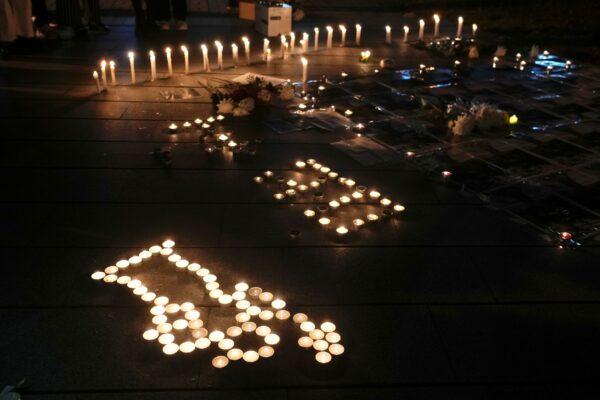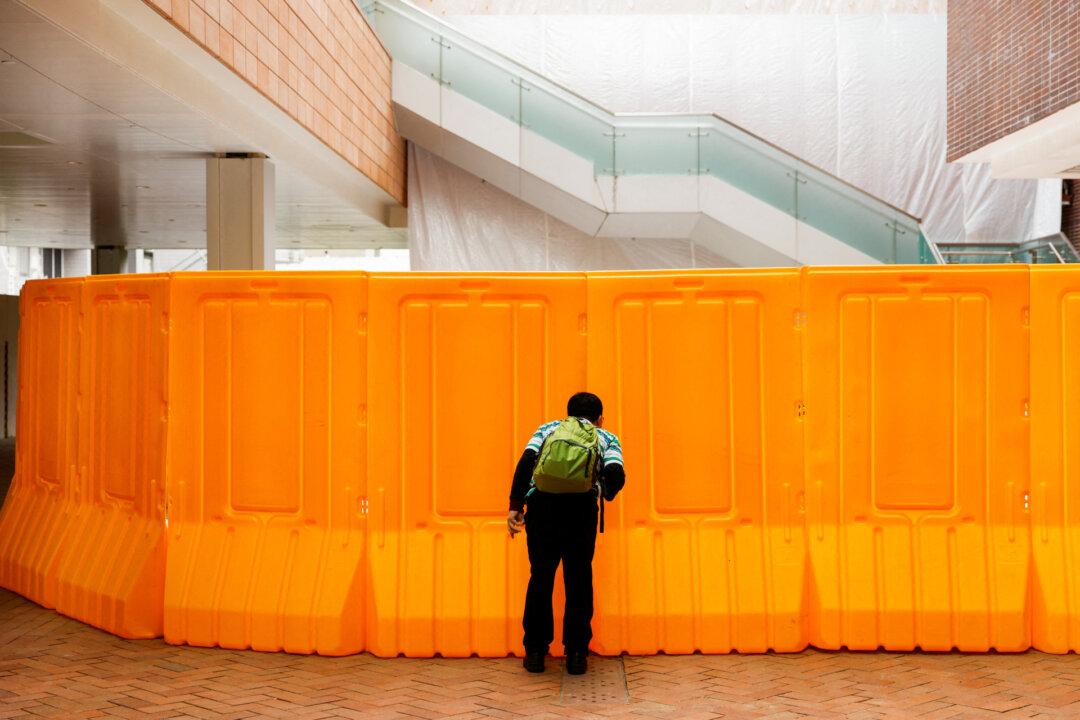Just before dawn on Dec. 24, the Chinese University of Hong Kong (CUHK) took down a statue depicting a woman holding a flame. The 21-foot tall bronze sculpture, named “Goddess of Democracy,” is a replica of a 30-foot tall white plaster and foam statue erected by art students and brought to Tiananmen Square in 1989.
Hundreds, if not thousands, of protesters were killed during the massacre under communist rule.
In memory of the fallen, the Hong Kong statue stood on the CUHK campus for over a decade since 2010. Yet the university said on Dec. 24 that it was never approved.
“The university never authorized the display of the statue on its campus, and no organization has claimed responsibility for its maintenance and management,” it said in a statement.
Later on Dec. 24, students at CUHK lit candles into the shape of the Goddess of Democracy, in response to the removal of the statue.

The same day, a relief sculpture portraying the crackdown disappeared from a wall at Lingnan University in Hong Kong. The bas-relief included images of a line of tanks halting before a lone protester known as “tank man,” and victims shot by Chinese troops being carried away.
A spray painting of the Goddess of Democracy at the student union on campus was also painted over in grey paint.
Students responded by pasting a sheet of paper with the word “shameful” on the effaced image, which was quickly ripped off by security guards.
Chen Weiming, the artist that created both the statue and wall relief, said he would sue the universities if there was any damage to his works.
The text at the base of the sculpture reads, “The old cannot kill the young,” in English and Chinese.
The Council of HKU said it did so “based on external legal advice and risk assessment for the best interest of the university.”
The disappearances of these symbolic monuments at three universities in quick succession mean hardly any public Tiananmen memorials remain in the financial hub, as Beijing has mounted its effort to erase the bloody repression from the public consciousness.
In September, police raided the June 4th Museum in Hong Kong and collected a cut-out of the Goddess of Democracy.




